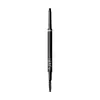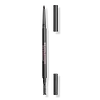What's inside
What's inside
 Key Ingredients
Key Ingredients

 Benefits
Benefits

 Concerns
Concerns

 Ingredients Side-by-side
Ingredients Side-by-side

Hydrogenated Soybean Oil
EmollientHydrogenated Coco-Glycerides
EmollientHydrogenated Vegetable Oil
EmollientZinc Stearate
Cosmetic ColorantStearic Acid
CleansingPolyglyceryl-2 Triisostearate
EmulsifyingCopernicia Cerifera Wax
Tocopherol
AntioxidantAscorbyl Palmitate
AntioxidantSilica Silylate
EmollientHexylene Glycol
EmulsifyingCaprylyl Glycol
EmollientPhenoxyethanol
PreservativeIron Oxides
CI 77492
Cosmetic ColorantCI 77499
Cosmetic ColorantMica
Cosmetic ColorantCI 77891
Cosmetic ColorantHydrogenated Soybean Oil, Hydrogenated Coco-Glycerides, Hydrogenated Vegetable Oil, Zinc Stearate, Stearic Acid, Polyglyceryl-2 Triisostearate, Copernicia Cerifera Wax, Tocopherol, Ascorbyl Palmitate, Silica Silylate, Hexylene Glycol, Caprylyl Glycol, Phenoxyethanol, Iron Oxides, CI 77492, CI 77499, Mica, CI 77891
Olus Oil
EmollientHydrogenated Vegetable Oil
EmollientCera Microcristallina
Emulsion StabilisingCopernicia Cerifera Cera
EmollientMica
Cosmetic ColorantHydrogenated Castor Oil Dimer Dilinoleate
Skin ConditioningPhenoxyethanol
PreservativeTocopherol
AntioxidantLecithin
EmollientAscorbyl Palmitate
AntioxidantGlyceryl Stearate
EmollientPentaerythrityl Tetra-Di-T-Butyl Hydroxyhydrocinnamate
AntioxidantGlyceryl Oleate
EmollientCitric Acid
BufferingTitanium Dioxide
Cosmetic ColorantIron Oxides
Olus Oil, Hydrogenated Vegetable Oil, Cera Microcristallina, Copernicia Cerifera Cera, Mica, Hydrogenated Castor Oil Dimer Dilinoleate, Phenoxyethanol, Tocopherol, Lecithin, Ascorbyl Palmitate, Glyceryl Stearate, Pentaerythrityl Tetra-Di-T-Butyl Hydroxyhydrocinnamate, Glyceryl Oleate, Citric Acid, Titanium Dioxide, Iron Oxides
Ingredients Explained
These ingredients are found in both products.
Ingredients higher up in an ingredient list are typically present in a larger amount.
Ascorbyl Palmitate is created by combining pure Vitamin C and palmitic acid. It is an antioxidant and helps reduce hyperpigmentation.
This ingredient is a more stable version of Vitamin C, meaning it does not disintegrate as quickly when exposed to sunlight. However, studies show it does not penetrate skin as well as pure Vitamin C.
Ascorbyl Palmitate is oil soluble.
Read more about other types of Vitamin C:
Learn more about Ascorbyl PalmitateHydrogenated Vegetable Oil is created by adding hydrogen to vegetable oil in order to give it more stability. This process also raises the melting point of vegetable oil. In cosmetics, it is an emollient.
Emollients help soothe and soften the skin. They do this by creating a protective film on your skin. This barrier helps trap moisture and keeps your skin hydrated. Emollients may be effective at treating dry or itchy skin.
The term "Hydrogenated Vegetable Oil" is an umbrella term and can refer to a variety of vegetable oils and blends of: sunflower oil, soybean oil, olive oil, coconut oil, palm oil, and more.
Due to the differences in vegetables, the benefits may vary.
Learn more about Hydrogenated Vegetable OilMica is a naturally occurring mineral used to add shimmer and color in cosmetics. It can also help improve the texture of a product or give it an opaque, white/silver color.
Serecite is the name for very fine but ragged grains of mica.
This ingredient is often coated with metal oxides like titanium dioxide. Trace amounts of heavy metals may be found in mica, but these metals are not harmful in our personal products.
Mica has been used since prehistoric times throughout the world. Ancient Egyptian, Indian, Greek, Roman, Aztec, and Chinese civilizations have used mica.
Learn more about MicaPhenoxyethanol is a preservative that has germicide, antimicrobial, and aromatic properties. Studies show that phenoxyethanol can prevent microbial growth. By itself, it has a scent that is similar to that of a rose.
It's often used in formulations along with Caprylyl Glycol to preserve the shelf life of products.
Tocopherol (also known as Vitamin E) is a common antioxidant used to help protect the skin from free-radicals and strengthen the skin barrier. It's also fat soluble - this means our skin is great at absorbing it.
Vitamin E also helps keep your natural skin lipids healthy. Your lipid skin barrier naturally consists of lipids, ceramides, and fatty acids. Vitamin E offers extra protection for your skin’s lipid barrier, keeping your skin healthy and nourished.
Another benefit is a bit of UV protection. Vitamin E helps reduce the damage caused by UVB rays. (It should not replace your sunscreen). Combining it with Vitamin C can decrease sunburned cells and hyperpigmentation after UV exposure.
You might have noticed Vitamin E + C often paired together. This is because it is great at stabilizing Vitamin C. Using the two together helps increase the effectiveness of both ingredients.
There are often claims that Vitamin E can reduce/prevent scarring, but these claims haven't been confirmed by scientific research.
Learn more about TocopherolThis ingredient is a combination of red, black, and yellow iron oxide pigments. This combination of colors is usually found in foundation, because it results in a "skin" color.